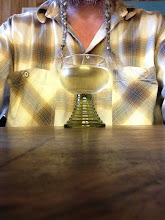Firstly I reminded my audience of those essentials of historical perspective, geological time, time of man, life time and cocktail hour which are so often left out of criticism. When I read (as I was doing this morning) Colin Rowe on La Tourette, I can't help but be interested in how old he was and how many bottles of scotch he was demolishing a day when he wrote it. So as preamble, let's say I loved Las Vegas roughly between the ages of thirty five and forty eight - just about the right age for anybody to love Las Vegas. It also helps to know that at that time Vegas was experiencing a boom of unprecedented and global significance, and that I had been taught by David Greene of Archigram. One of the few things I remember David saying fairly vehemently was that the things going on around you were far more interesting than any theoretical bullshit, and I agreed with him.
At the end of my lecture, I realised that at least one student had understood something I myself had not realised about my love of Vegas. His insight blew me away, he said 'You like Las Vegas because even if it doesn't look it, even if it looks the opposite, you think it's organic!'
Such a thought!! Vegas as a sort of utopia, a non Jerusalem, what you got if you had the balls to put people together away from the context of other things (in the middle of a desert- might as well be a desert island) and didn't expect them to be perfect at all; just let them get on with it, and out of that would grow flat line social hierarchy, a known percentage to the house, some massive sense of freedom, and that magnificent image of life as a battle against the odds played out across acres and acres of five star interiors - not Lord of the Flies at all! Most of all, a representation of many all too human truths. To live there successfully you would have to grow up fast. Yes that made perfect sense to me at the time, and all made clear with the help of the eloquent art critic Dave Hickey. I now reckon Dave Hickey as a covert neoliberal. This is a sad turn of events, but I still find him damn good.
Paradoxically the Americans escaped our proto-renaissance concept of utopia by embracing instead some notion of the organic, and their architectural visions of what organicism looked like made it into many a living room but not much further. Thats what makes Louis Sullivan so interesting. It's a shame, he would have found a better bar to drown his sorrows in Las Vegas than in Owatona nowheresville.
But that student was right, Las Vegas didn't look organic but weirdly it was, whatever else it did. I had certainly demonstrated in my lecture that it grew rather effortlessly.
Of course most architects when confronted with the phenomenon of Las Vegas want to paint it all brown, they think that might make it authentic (and they tried it too in the new municipal buildings) but that is just a question of signage (ROFL).
However the whole point of utopia is that it must exist in the mind. There has to be the idea of living in it, but that is not entirely the point, just as we might say of the Ville Contemporaine by Le Corbusier. Building utopia, or even growing it, and even if as Oscar Wilde suggested, such an activity were symptomatic of our progress, it would seem to encourage hubris.
After 9/11 there was little chance of proselytising such an innocent American dream. Meanwhile the effort of studying Las Vegas had of course lead to the conclusion that architecture (somewhat disconcertingly) now posited not much more than stagecraft. This was unsatisfactory, but while I worked something out I was going to have to start talking about architecture in the past tense, that is until I fashioned some new utopia. Meanwhile, as Malcolm Higgs once said to me, 'well we may love whisky, but that doesn't mean it's a good idea to drink it all the time'. He was quite right on both metaphoric and practical levels.
Photo Julie Cook. Me under the 'world's biggest' neon sign. Hilton Las Vegas c1998



No comments:
Post a Comment